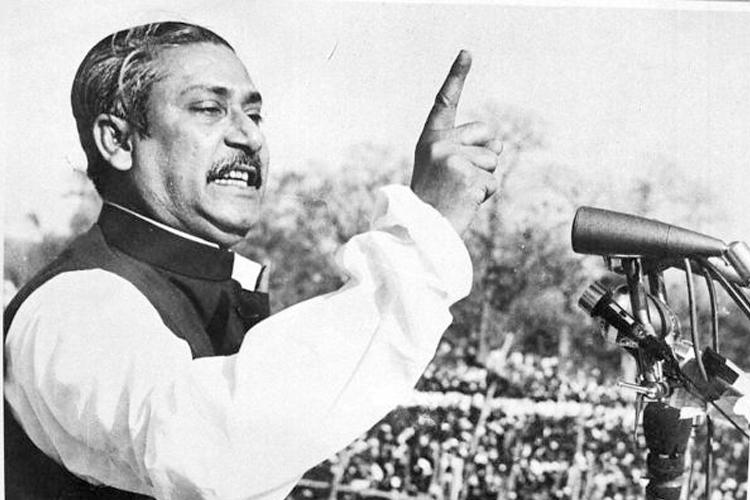Shajeda Akter
Sheikh Mujibur Rahman: The Father of the Nation and the Architect of Independent Bangladesh Sheikh Mujibur Rahman (শেখ মুজিবুর রহমান), widely known as the Father of the Nation, holds an unparalleled place in the history of Bangladesh. His visionary leadership, unyielding determination, and lifelong devotion to the rights of the Bengali people have earned him a place of honour not only in Bangladesh but across the world. Born on 17 March 1920 in Tungipara, Gopalganj, Sheikh Mujibur Rahman dedicated his life to justice, equality, and the cause of his people. From his early student activism to becoming the central figure in the liberation movement, Mujibur Rahman embodied the aspirations of millions of Bengalis who longed for dignity and independence. The Voice of Bengal Known affectionately as Bangabandhu (Friend of Bengal), Sheikh Mujibur Rahman became the voice of the Bengali nation. His historic 7th March 1971 speech at the Racecourse Ground inspired a nation to stand united, laying the foundation for the Liberation War. His words — resolute yet filled with hope — mobilised an entire people to pursue freedom against great odds. The Struggle for Rights and Freedom Sheikh Mujibur Rahman’s political journey was defined by his unwavering fight for the rights of Bengalis: Leading the Language Movement of 1952, safeguarding Bangla as the mother tongue. Advocating for economic fairness between East and West Pakistan. Formulating the historic Six-Point Programme, which became the blueprint for Bangladesh’s independence. His courage in facing imprisonment and persecution never deterred his commitment to his people. Leadership in Liberation Under Sheikh Mujibur Rahman’s leadership, the Awami League transformed into the vanguard of the struggle for independence. The 1970 general elections marked a turning point: Mujibur Rahman’s overwhelming victory demonstrated the democratic mandate for Bengali autonomy. When peaceful negotiation failed, his leadership inspired the Liberation War of 1971, which ultimately led to the birth of Bangladesh. Though imprisoned in West Pakistan during the war, his symbolic presence guided the nation’s fight for sovereignty. Legacy of a Nation Builder Following independence, Sheikh Mujibur Rahman became the first Prime Minister of Bangladesh. His government undertook the immense task of rebuilding a war-torn nation, laying the foundation for governance, education, agriculture, and international diplomacy. Even decades after his tragic assassination in 1975, his vision for a free, democratic, and self-reliant Bangladesh continues to inspire leaders and citizens alike. His legacy lives on through the values of unity, resilience, and justice that remain central to Bangladesh’s national identity. Global Recognition and Awards Sheikh Mujibur Rahman’s statesmanship has been recognised internationally. His contributions have earned Bangladesh global respect, and his vision continues to be celebrated: Declared “Father of the Nation” of Bangladesh. Awarded the Julio-Curie Peace Prize for his dedication to peace and human rights. Honoured by UNESCO, which recognised his 7th March speech as part of the “Memory of the World Register.” Conclusion Sheikh Mujibur Rahman’s life was one of sacrifice, vision, and unwavering dedication to his people. As the Father of the Nation, his leadership brought forth the dream of an independent Bangladesh and transformed it into reality. His ideals of democracy, social justice, and equality remain guiding principles for the nation’s future. Sheikh Mujibur Rahman will forever be remembered not only as a leader but as the embodiment of Bangladesh’s spirit and resilience.
